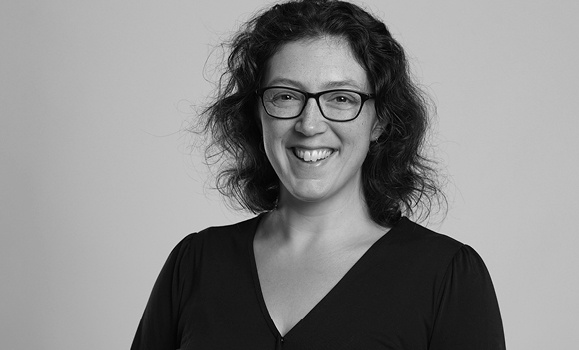Sciographies is a radio show and podcast about the people who make science happen, presented by The Faculty of Science and campus-community radio station CKDU 88.1 FM. This is the fifth article in a series that features excerpts from each new episode released this fall.
Dr. Erin Bertrand began her undergraduate experience with a desire to examine and solve societal problems, particularly environmental issues. After learning that microscopic life in the ocean can have cascading effects on entire ecosystems, she channelled her determination through the natural sciences and launched her research career.
Today, Dr. Bertrand is an associate professor in the Department of Biology and examines the relationship between marine microbes and ocean metabolism. She’s also a Canadian ambassador for the project, an international scientific effort to map marine microbes all over the world. If successful, this tool will plot microbial activity into ecosystem modelling technologies for the first time, leading to a more dynamic understanding of the ocean’s role in global climate patterns and marine-based food supply.
In this week’s episode of Sciographies, Dr. Bertrand talks to host Dr. David Barclay about pivoting from liberal arts to natural sciences, the challenging fieldwork she conducts in Antarctica, and her commitment to creating an inclusive lab environment for her students.
Listen to a preview of Dr. Bertrand’s episode
Ìý
Here are some excerpts from the episode, edited for clarity and length.
Switching gears
Barclay: When did you switch [your major] in college?
Bertrand: In a liberal arts college, you can take a while to figure things out, so I ended up taking enough classes in political science for a minor, but I didn’t get it officially, and I took enough Russian literature for a minor in philosophy. But I ended up majoring in environmental science and chemistry. I was really sparked by thinking about how very tiny things, very small changes, could have global-scale impacts. I started doing work on metalloenzymes — these are enzymes that have a metal in them, and those metals are required for the activity that those enzymes do. I got the opportunity to grow bacteria that were from hydrothermal vents that had these enzymes. I loved thinking about the activity of this invisible thing that I knew needed this tiny requirement, and that its activity had something to do with this amazing ecosystem at the bottom of the ocean.
Discovering key nutrients for ocean metabolism
Barclay: Can you summarize the findings of your PhD work?
Bertrand: … Vitamin B12, which is a cobalt-containing vitamin that humans need, well phytoplankton need it for the same reasons. My major finding was that the amount of B12 in the Southern Ocean is sometimes not enough to support the growth of phytoplankton, so it can be a limiting nutrient down there. This concept that a vitamin — which is produced by a small subset of bacteria in the water — could be what limits the growth of the major primary producers in ocean ecosystems was a surprising concept to a lot of people. Then I identified some proteins that are produced by some key plankton when they don't have enough B12. This was a sensor for whether they were stressed without enough B12. So, we could go down to the ocean and measure the genes for producing that protein, or that protein itself, and determine whether these plankton are likely to be experiencing some kind of consequence because they don't have enough B12 around.
Creating an inclusive and accessible space to do science
Barclay: Do you feel that as you become more senior and established in your role, you can spend more time on questions [around inequalities]?
Bertrand: Yes. I feel like I’m now in a position where I must do that.
Barclay: This is something I think we all deal with as we’re moving through our career — how to be a leader [for our students]. I'm curious if you have strategies that are progressive in nature about how you conduct research and instruction.
Bertrand: One of the things that’s been important for my lab is to discuss a very specific value statement and to think about all the things that we do as a lab that have implications. Like, where do we publish our work? What are the values that those journals embody? Who are on those editorial boards? … We’re not working as natural scientists in a vacuum. Everything we do is impacted by society around us, and we have influence on all these processes… [The value statement] is up front and center on our website and that lets students who are thinking about where they might want to go decide if our lab would be a good place to work. Those aren’t particularly innovative answers, but they’re the things that I think get the conversation headed in the right direction… But I think getting people who’ve felt excluded in the door is really important.
Listen to the entire episode of Sciographies at 4:30 PM today on in Halifax or find it on , , and other popular podcasting platforms. You can also listen to previous Sciographies episodes on the same platforms or at and dal.ca/sciographies.

